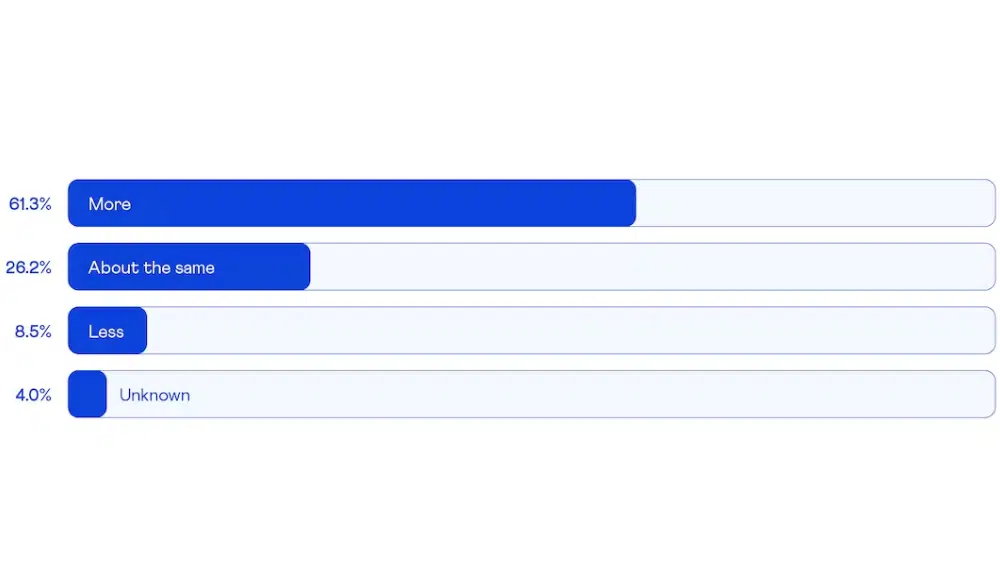Demystifying integrations

APIs have become the latest buzzword in financial advice integration, with advisers, providers and technology firms all seeking to save time and money by connecting software and systems to allow for easier sharing of data and automation of processes. However, while the term has become commonplace, those outside of fintech circles may not really understand what it means. Here we aim to demystify integrations and explain how advice firms can utilise APIs for the benefit of their staff and clients.
What do we mean by integration?
At a basic level, integration is the process of uniting different things. One of the frustrations we frequently hear from advisers is that their technology doesn’t link up fully: there’s still too much rekeying of information and too often you, or the client, has to access multiple systems to complete the customer journey.
In an ideal world, you want systems to share information automatically so you don’t have to rekey any client data. At the same time, you want to be able to move seamlessly between different advice tools without the inconvenience of logging out of one and into another. You need your systems to talk to each other, share data and continue processes with minimal manual intervention, streamlining the user experience to create a single, straight-through journey for the adviser, paraplanner or client.
Thanks to the rise in APIs, this type of technology integration is no longer just a pipe dream.
What is an API?
An API, or Application Programming Interface, is a set of defined rules that allows different systems to speak to one another. To put it simply, the API works as an intermediary, passing messages between systems that can’t communicate directly to provide a way for them to connect and transfer data securely.
They have revolutionised how we integrate technology. A decade ago, system integration meant two providers getting together to build something specific to connect their technologies. While this did the job, it took time and money to achieve and created an ongoing need to maintain all the bespoke links between different parts of the chain. Due to the complexity involved, this level of system integration was only completed for key functionality, leaving most data sharing to manual processes.
For financial advisers, pulling data out of different systems by hand used to mean producing a client report could take several days. Today you can complete the same task in minutes, largely thanks to APIs which allow your internal and external data sources to integrate with your back-office solution.
The use of APIs has skyrocketed in recent years. The growing use of data across all industries means that enabling systems to communicate seamlessly with each other and automate processes is increasingly important. A survey last year by RapidAPI among 1,500 IT professionals, found that 61% used more APIs in 2020 than in 2019 and 71% expected to use even more in 2021. The survey also revealed that financial services was the industry with the highest expected API usage.

This tallies with the increasing use of APIs within intelliflo’s systems, where we register about 1.5 million API calls (basically an individual data request) every week. Providers and fintech companies are increasingly creating apps that use APIs to offer an easy way to integrate popular software solutions and ensure that data is transferred securely and in compliance with industry and data regulations.
New apps are becoming an integral part of the advice process to fill functionality gaps and provide clients with an enhanced experience. Through our intelliflo store, advisers can view and install more than 80 apps to extend intelliflo office’s capabilities, from platforms and provider feeds to cashflow modelling and financial planning tools. To add new functionality, you simply download your chosen solution from the online store in the same way you’d download an app on your mobile. As APIs are based on a standard ‘language’, you can plug in as many different tools as you want and build your own bespoke technology stack that meets the specific needs of your business and client base.
We’re always open to new integration partnerships to help you get the most from your technology and take pride in providing open architecture solutions that allow our clients to select the solution that works for them. Our open API framework allows providers and advisers to create their own software, making the intelliflo store an ever-growing marketplace of apps and integrations.

The holy grail of integration
While some systems only need to transfer data one way, for many tasks in the advice process, the more data that is shared the better, for instance transferring data between your back office system and your client portal, platform, or cashflow planning tool and back again. Two-way integrations allow for a straight-through end-to-end journey, with greater automation of tasks, removing the more challenging aspects of the advice process and giving you more time to focus on your clients.
This two-way sharing of data is the holy grail in streamlining the advice process and the API model gives us a strong foundation to build these deeper integrations. However, it still requires all players to work together to make the most of the technology. The intelliflo office API currently provides over 250 endpoints – the places where other systems can connect to make different data requests – so it’s already possible to support the entire client journey, we just need to make best use of the existing architecture in order to share the necessary data and functionality seamlessly. To do that, we encourage our partners and potential integrators to use APIs to solve specific problems faced by advisers and we work with providers and fintech companies to develop existing and new apps that we believe offer functionality to enhance the way you operate.
To ‘future-proof’ our technology, we’re also looking at ways to give our APIs extensibility. This means instead of being completely fixed, the API coding allows some flexibility for customisation after development without interfering with the original functionality it was designed to provide. This concept of extensibility will become increasingly important as adviser tech becomes more interconnected, providing the flexibility to solve issues at an individual firm level and create links within a company’s own technology that won’t have been anticipated during general development without going back to the API drawing board.
To find out more about the intelliflo store, our integrations and intelliflo in general, please get in touch.
[1] https://www.devopsdigest.com/api-adoption-on-the-rise-across-all-industries